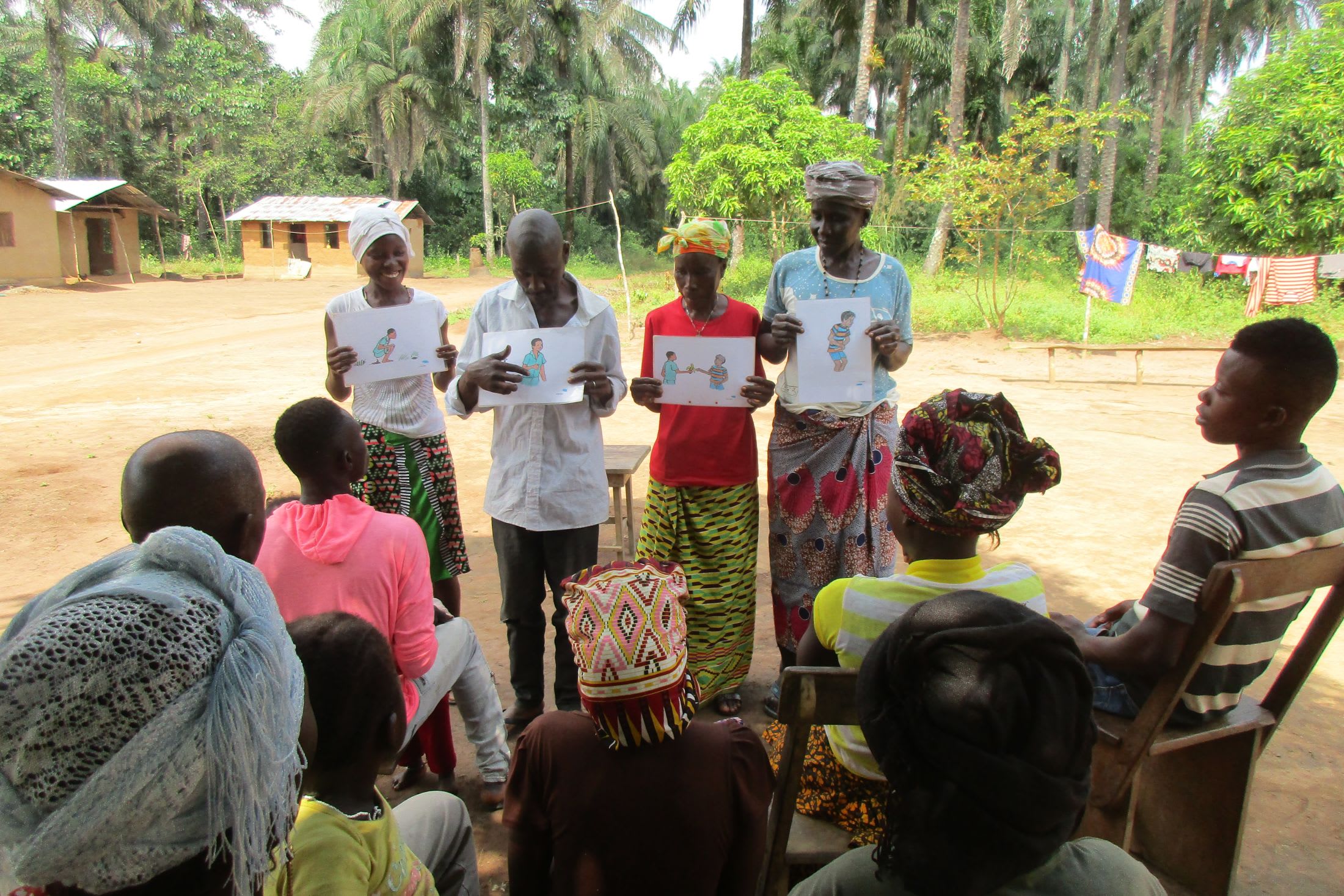The 60 community members living in this part of Rogberay have gone years without a safe, close water source, and they are tired and frustrated.
"The water situation in this community is really disturbing me," said 25-year-old farmer Ramatu Kargbo, shown below carrying water home.

Since community members have no other option, everyone is forced to collect water from the swamp. But the swamp is the same place where they do their laundry and bathe, and where wildlife gets water as well.
"Over the years, I have been fetching water from the swamp. Fetching water from the swamp is not easy mainly [because] the swamp is too far [away] and the water is not even good for laundering [clothes], not to talk of drinking. But I have no choice but to drink from it," said Ramatu, collecting swamp water below.

Ramatu recounted a time when she was attacked by a snake at the waterpoint, which led her to make a very difficult decision.
"There was a time I went with my child to the swamp, and I was attacked by a snake. Thank God some of the young men were around. They intervened and killed the snake. This really makes me be afraid. Whenever I want to fetch water from the swamp, I must leave my baby at home. The child would be crying, but I have no choice but to leave him at home. This is really beyond my wish, but I must do that," said Ramatu.
Ramatu is overwhelmed by the challenges she faces and is losing hope. Every season presents a different problem. During the rainy season, flooding makes the swamp water so muddy she can't stand to use it and relies on what she can collect in rain barrels. In the dry season, water is so scarce she must delay important tasks like watering her garden, bathing her child, or washing her baby's diapers.
And the situation is similar for the children in the community, too.
"I must do one or more trips before going to school in the morning. This is really not easy for me because of the distance and waiting time. By the time I do two trips, I would already be late for school," said 14-year-old Fatmata K., shown below carrying water back from the swamp.

"There was a time in which I saw a snake. I dropped the container and ran as fast [as] I could just to escape the danger. Although I was fortunate to escape, the water container I left at the swamp was stolen," recounted Fatmata.
"Similarly, the weight of the container and the long walking distances make me to be feeble. I would not be able to get enough energy to study at night [since] all my energy would have been utilized to fetch water throughout the day, and this is affecting my performance at school," concluded Fatmata.
The heartbreaking choices people in this community are forced to make should not be. Providing them with their own well will relieve that burden and allow them to hope again.
The Proposed Solution, Determined Together...
At The Water Project, everyone has a part in conversations and solutions. We operate in transparency, believing it benefits everyone. We expect reliability from one another as well as our water solutions. Everyone involved makes this possible through hard work and dedication.
In a joint discovery process, community members determine their most advantageous water solution alongside our technical experts. Read more specifics about this solution on the What We're Building tab of this project page. Then, community members lend their support by collecting needed construction materials (sometimes for months ahead of time!), providing labor alongside our artisans, sheltering and feeding the builders, and supplying additional resources.
Water Access for Everyone
This water project is one piece in a large puzzle. In Kenya, Sierra Leone, and Uganda, we're working toward complete coverage of reliable, maintained water sources that guarantee public access now and in the future within a 30-minute round trip for each community, household, school, and health center. One day, we hope to report that this has been achieved!
Training on Health, Hygiene & More
With the community's input, we've identified topics where training will increase positive health outcomes at personal, household, and community levels. We'll coordinate with them to find the best training date. Some examples of what we train communities on are:
- Improved hygiene, health, and sanitation habits
- Safe water handling, storage & treatment
- Disease prevention and proper handwashing
- Income-generation
- Community leadership, governance, & election of a water committee
- Operation and maintenance of the water point

 Borehole Well and Hand Pump
Borehole Well and Hand Pump
 Rehabilitation Project
Rehabilitation Project

























